20 Fascinating Facts About Turkey
20 Fascinating Facts About Turkey
There is a lot more to Turkey than meets the eye – between the beaches and bustling markets lies a wealth of interesting history filled with religious and literary figures, civil war, and a multitude of languages. there is a long list of myths and facts about each country and it’s the same about Turkey, so we can’t go through every single one but in today’s article, we’re going to dive into 20 fascinating facts that you should know about Turkey whether you are planning to visit or just in love with Turkish dramas! without further ado let’s get into it:
1. Istanbul is not the capital of Turkey
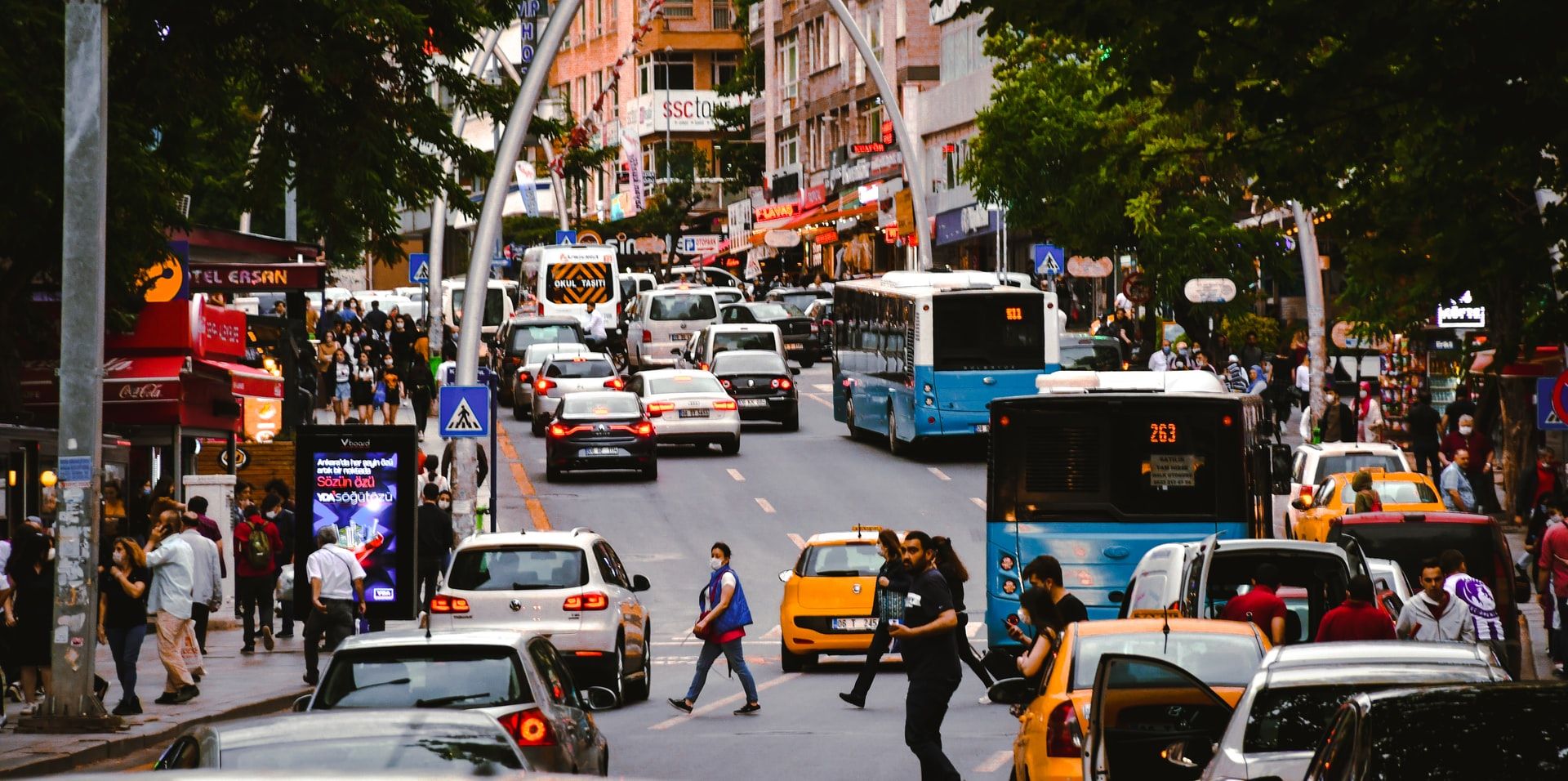
You might have been confused about the capital of Turkey and perhaps thinking it’s Istanbul but it is not! shocking,right? you have seen a lot of Turkish series produced in Istanbul, and many books, movies, and content creators refer to Istanbul all the time but Turkey’s capital city is “Ankara“.
capital of Turkey
Ankara historically known as Ancyra and Angora is the capital of Turkey. Located in the central part of Anatolia, the city has a population of 5.1 million in its urban center and over 5.7 million in Ankara Province, making it Turkey’s second-largest city after Istanbul.
In 1923, after the Turkish War of Independence, Ankara replaced the city as the capital of the newly formed Republic of Turkey. In 1930, the city’s name was officially changed to Istanbul, the Turkish rendering of the appellation Greek speakers used since the eleventh century to colloquially refer to the city.
Facts About Turkey
2. Jelly beans are originally from Turkey

Jelly beans got started as an American form of Turkish Delight: The “jelly” part of a jelly bean is actually what we call Turkish delight, a gently chewy cornstarch-thickened sweet that was created by an Istanbul confectioner in 1777. It reached America in the late 19th century. That happened to be a time when there was a craze — particularly among children — for penny candies. (They weren’t necessarily a penny apiece — 10 cents would get you a 1-pound bag of gumdrops.) Some unknown American candy maker had the bright idea of making a penny-candy version of Turkish delight by cutting it into tiny pieces and giving them a hard candy coating. The sugar coating protected the soft interior from dirt and created something you could carry in your pocket.
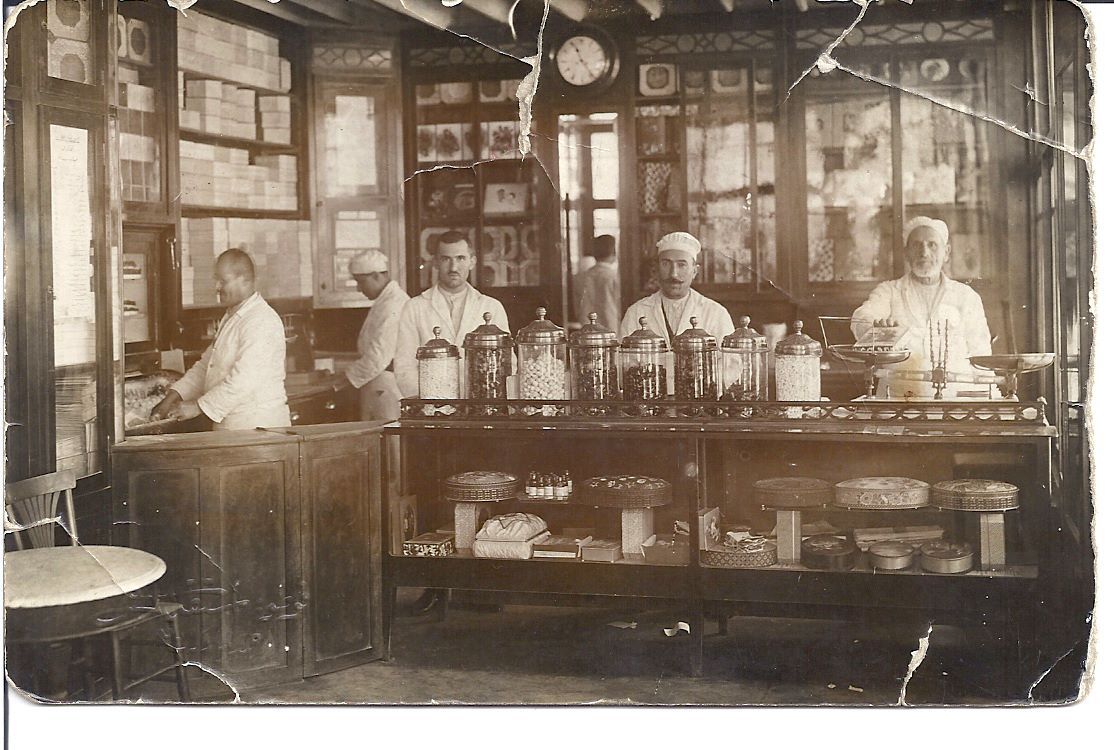
Hacı Bekir Turkish Delight shop
As you see in the photo Hacı Bekir is one of the oldest Turkish delight shops in Istanbul. Hacı Bekir Efendi came to Istanbul from the Araç district of Kastamonu and opened a small candy store in the Bahçekapı district in 1777. Şekerci Hacı Bekir Efendi, who started to manufacture and sell confectionery himself and would later be known as Hacı Bekir after fulfilling his pilgrimage between 1817-1820, has a past that circulates on the palates of four different centuries and five continents. if you are interested to learn more you can check out their website.
Facts About Turkey
3. Saint Nicolas lived in Turkey but Turks don’t celebrate Christmas
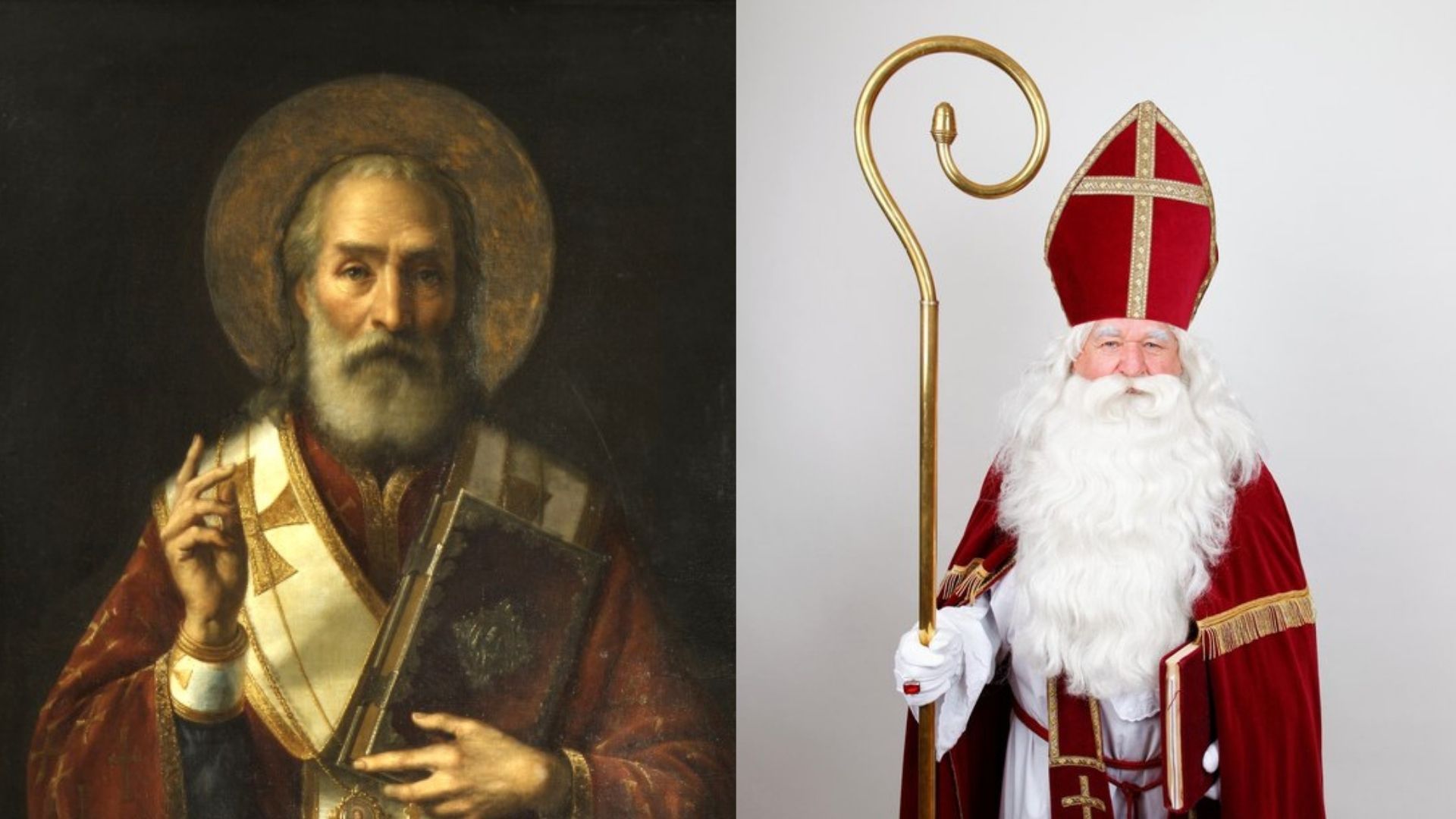
Santa Claus, or more precisely Saint Nicolas was born to wealthy parents, Nicholas was a Christian saint and Greek bishop of Myra, who was born in Patara. Once his parents died, he received a large amount of wealth, which he would give away to the poor and needy. Legend has it that he would drop bags of gold coins down the chimneys of houses, and provide fruits to children. His good deeds spread through Europe, and locals began integrating it with their myths and legends.
Christmas is not a big celebration in Turkey and December 25th isn’t a public holiday, it’s just a normal day! Of course, you would see Christmas decorations around the city or in stores but since only 0.2% of the Turkish population are Christians, they have their own religious community in Turkey and they celebrate it at their churches. Turkey is a secular country and despite the fact that the Christian population has a low rate in Turkey everyone is free to celebrate Christmas and Turkish people respect different religious backgrounds and beliefs.
Facts About Turkey
4. The name of “Turkey” the country was used long before the turkey bird name

To understand this, we have to get to know another bird: the guinea fowl. This bird bears some resemblance to the American turkey. The guinea fowl is actually native to eastern Africa and was imported to Europe through the Ottoman Empire. Ah, we are seeing a connection!
Once imported, Europeans came to call the guinea fowl the turkey-cock or turkey-hen, because the bird came from the Turks. When settlers in the New World began to send a similar-looking fowl back to Europe, they, out of familiarity, called them turkeys. But, every language seems to have radically different names for this bird, and so Turkey the country is definitely the first and correct usage of the word.
The Turkish word for “turkey” bird is hindi
The Turkish word for “turkey” bird is hindi, which in English means “Indian.” The original word in French, coq d’Inde, meant “rooster of India” and has since been shortened to d’inde. These names likely derive from the common misconception that India and the New World were one and the same. In Portuguese, it’s literally a “Peru bird,” and in Malay, it’s called a “Dutch chicken”
Facts About Turkey
5. Turkey introduced coffee to Europe in the 1500s
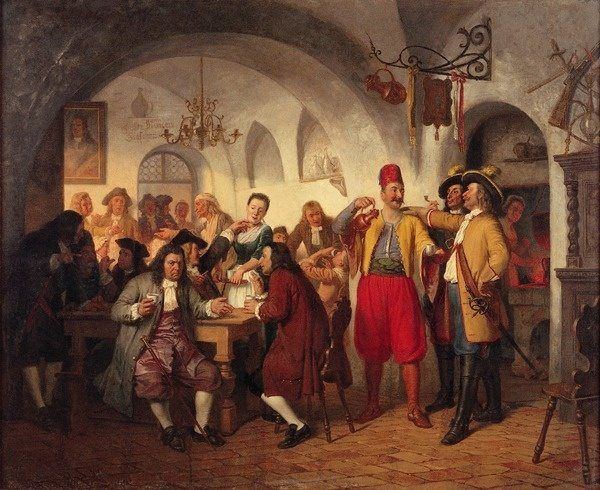
We owe coffee to the Ottomans. Even though coffee didn’t come from Turkey, the Ottomans brought coffee to Europe in the 16th century.
In the Ottoman Empire, the first coffeehouse was opened in Istanbul in 1555 during the reign of Suleiman the Magnificent. It was founded by two merchants from Damascus and established in Tahtakale, Istanbul. Eventually, coffeehouses offered more than coffee, providing sweet beverages and candies too.
When in Turkey, try the classic Turkish coffee, brewed in a cezve, a small copper pot that would be a great experience for coffee lovers!
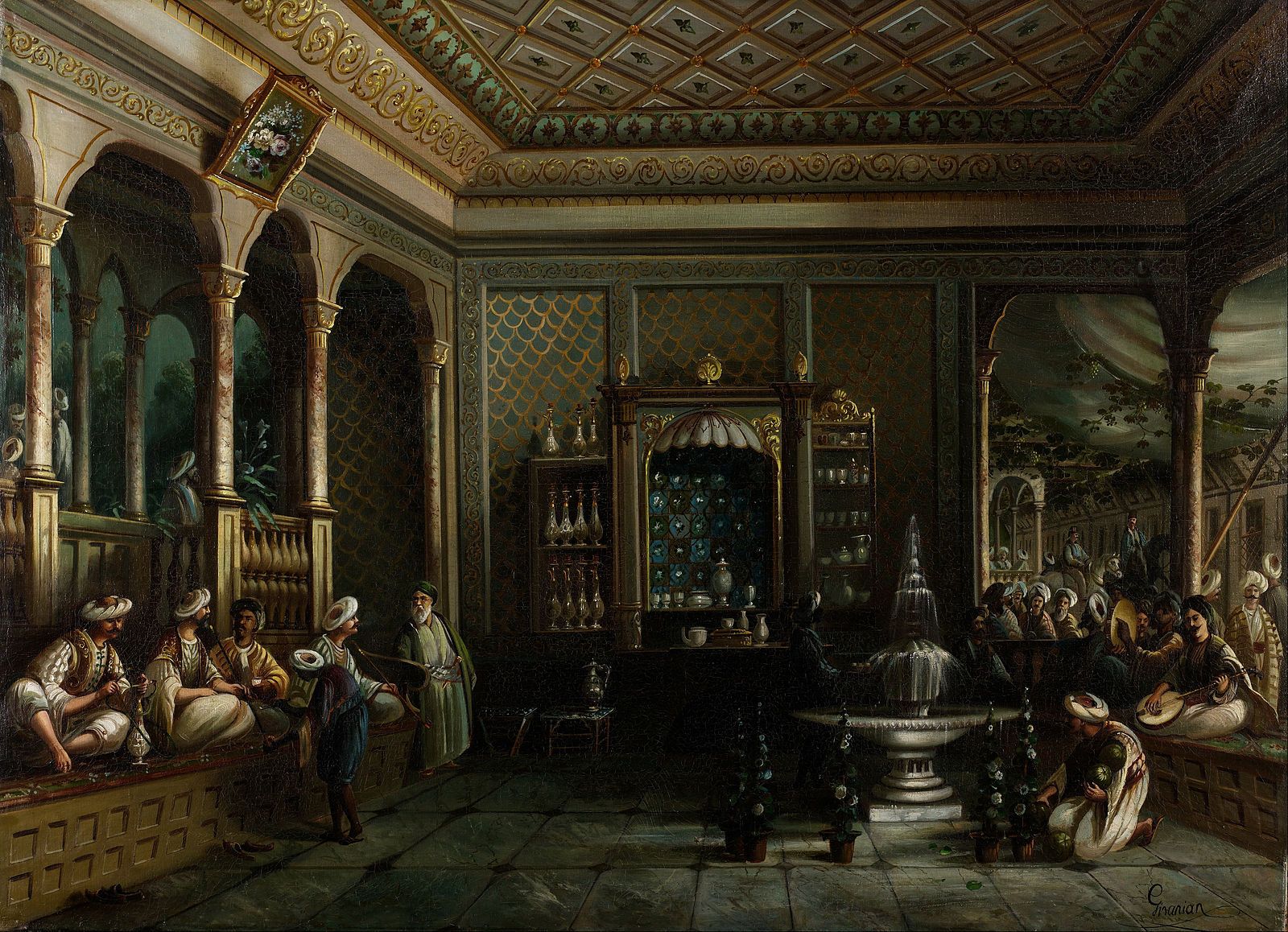
A Coffee House in Tophane
Facts About Turkey
6. Turkey is responsible for 80% of the world’s hazelnut exports

Turkey may be known for classics such as Turkish Delight or Turkish Coffee, but it is actually the world’s largest producer of hazelnuts. Turkey supplies approximately 75% of the world’s production of hazelnuts and is thus one of the pillars of the Turkish export market. Mainly due to its favorable weather conditions for hazelnut production, hazelnut fields stretch along the Black Sea coasts of Turkey.
20 Fascinating Facts About Turkey
7. Turkey was amongst one of the first countries to give women the right to vote (before America and most European countries)

20 Fascinating Facts About Turkey
8. There are no native camels in Turkey, but there are annual camel wrestling festivals

Despite the appearance of camels at holiday resorts, there are no deserts in Turkey and no native camels. There’s no desert in Turkey, so no native camels either. Yet camel trains once crossed the country on the way to trading posts in Africa and Asia. Camel wrestling is also a popular sport in the Aegean region of Turkey. Every year, the Selçuk Efes Camel Wrestling Festival takes place on Turkey’s southern Aegean coast.
20 Fascinating Facts About Turkey
9. Veni, Vidi, Vici (I came, I saw, I conquered)
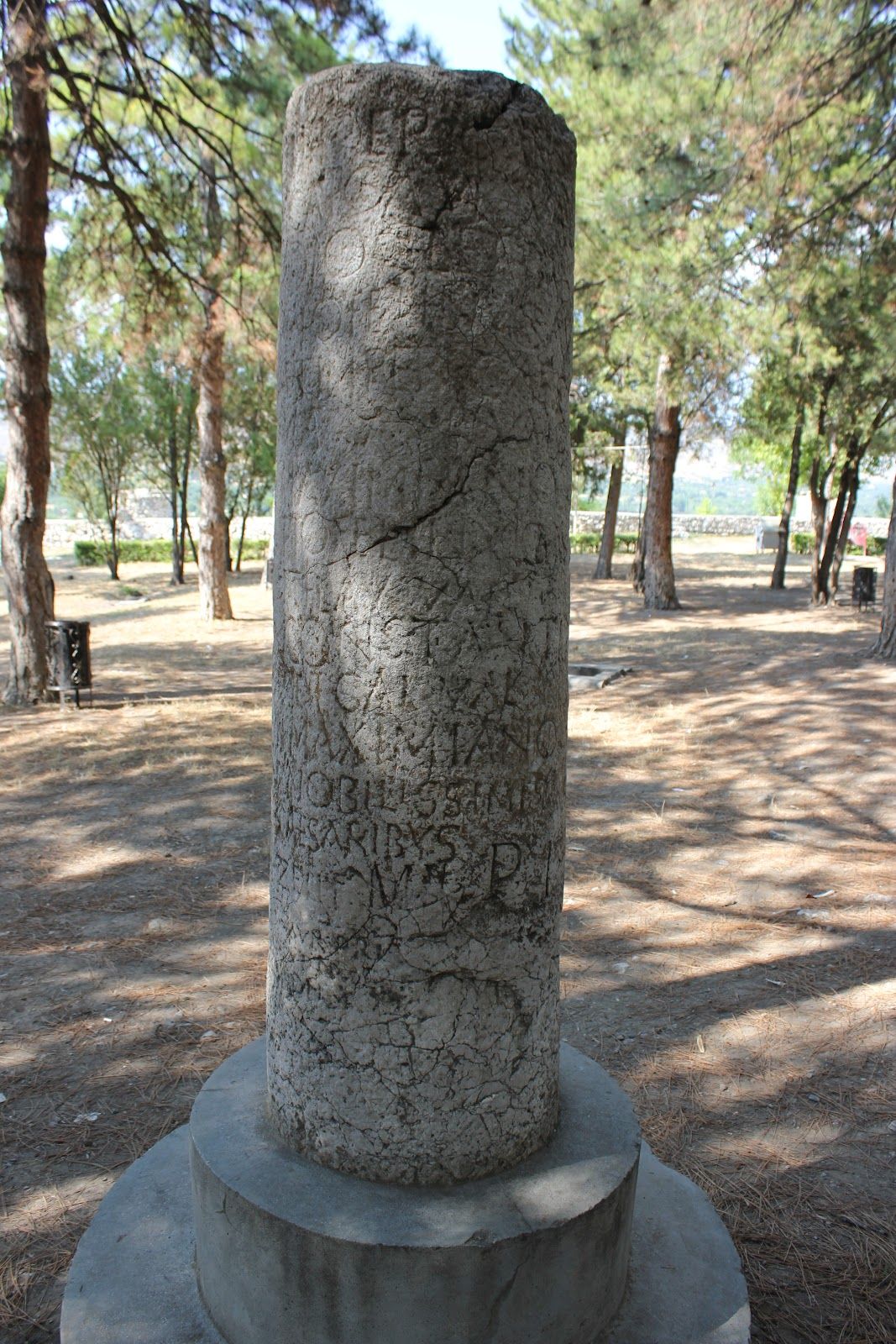
Veni, Vidi, Vici (I came, I saw, I conquered) The municipality of Zile in the northern province of Tokat has announced the acquisition of the Turkish patent license for the Roman Emperor Julius Caesar’s famous saying “Veni Vidi Vici” which is believed to have been uttered in district’s 4,000-year-old castle.
 Another cool fact you probably didn’t know is that you can see the Philip Morris logo contains the words of Julius Caesar, “Veni, Vidi, vici”
Another cool fact you probably didn’t know is that you can see the Philip Morris logo contains the words of Julius Caesar, “Veni, Vidi, vici”
20 Fascinating Facts About Turkey
10. Noah’s Ark is located in Turkey

It is believed by some scientists and scholars that Turkey has the landing place of Noah’s ark. The story of mass flooding on earth appears in the Christian bible and the specific location where Noah landed the ark has been determined as Mount Ararat which is 5165 high. – Many believe that Noah’s biblical ark arrived on the Ararat volcano. The mountain is beautiful to look at and is home to incredible natural diversity. It’s one of the highlights of the country, so make sure to check it out when you visit.

The last meal on Noah’s Ark, a pudding of sweet and sour taste (Ashure), is still served throughout Turkey.
20 Fascinating Facts About Turkey
11. The last station of the Orient Express train is Istanbul

Istanbul has the historical building of Sirkeci Train Station. This was the last stop of the Simplon – Orient Express – “kings of trains and train of kings” – between Paris and Constantinople (Istanbul) from 1883 to 1977. Agatha Christie was one of the passengers of this famous train.

20 Fascinating Facts About Turkey
12. The name “turquoise” actually comes from Turkey
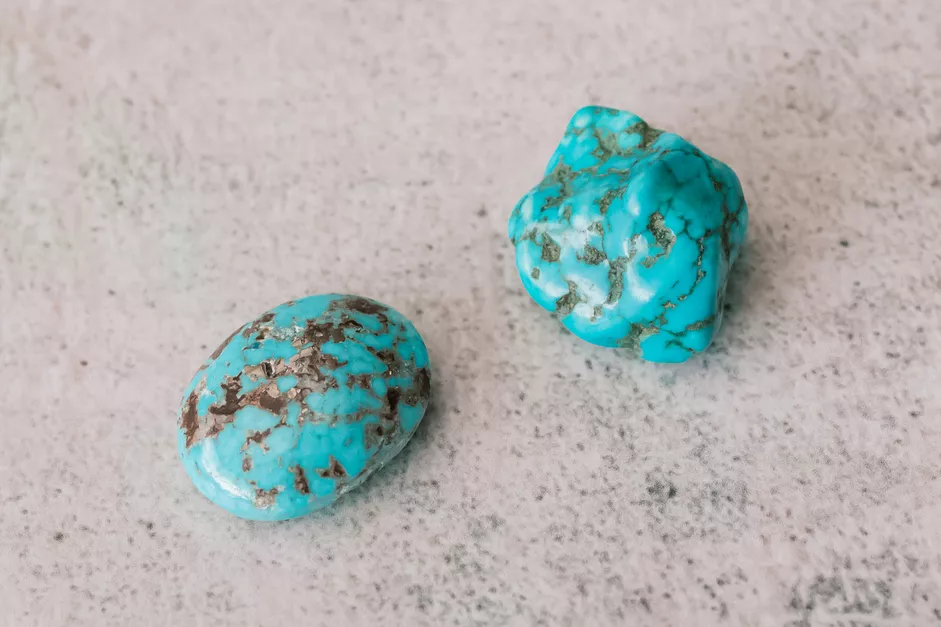
Turquoise means ‘Turkish stone’. The beautiful mineral came to Europe from Turkey and is one of the oldest gemstones in history. They were first used as amulets by Turkish soldiers.
20 Fascinating Facts About Turkey
13. A temple from the hunter-gatherer era can be found in Turkey
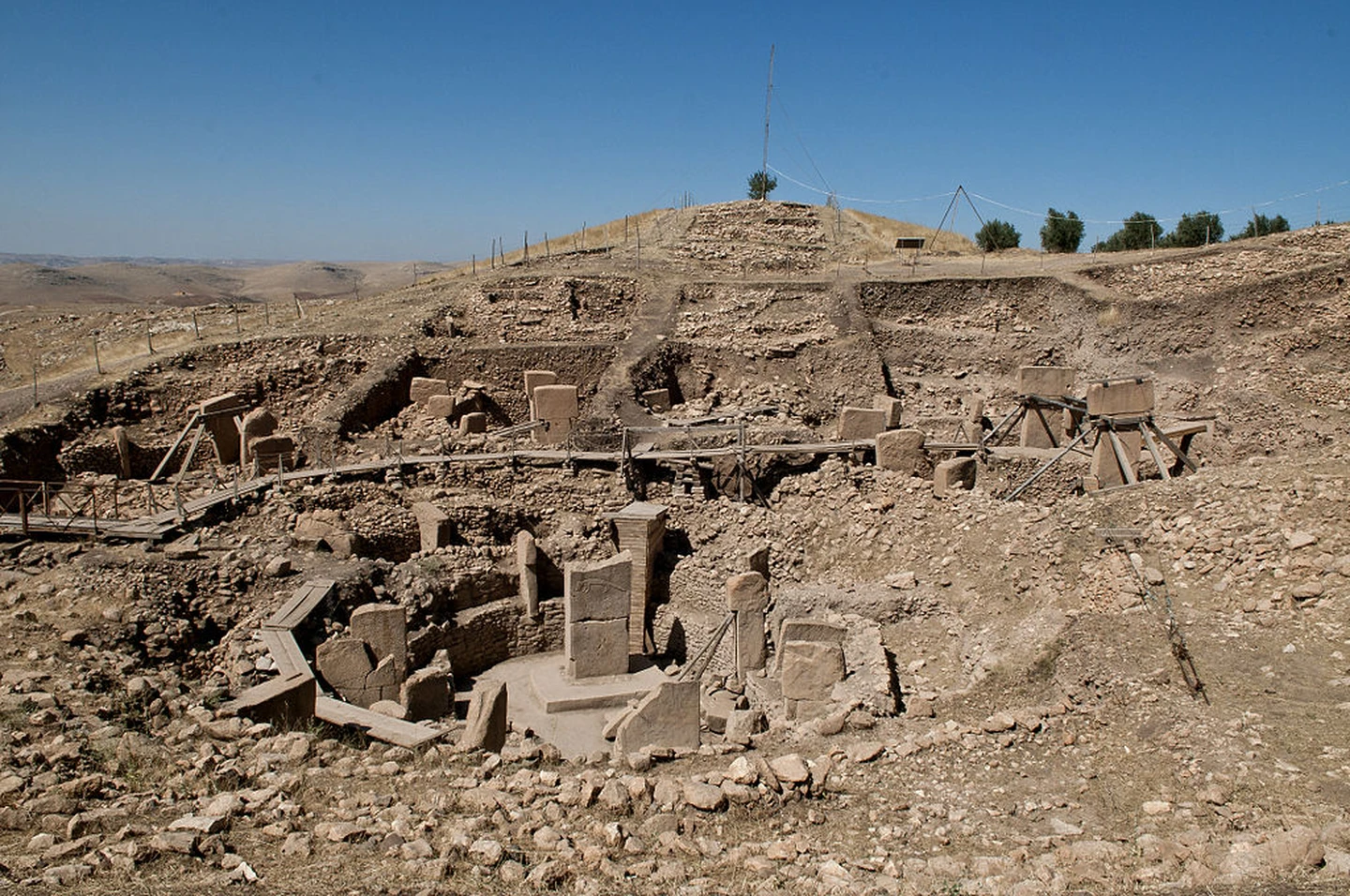
Before the 1990s, the widely held belief was that significant human construction didn’t take place until early man dealt with agriculture and began to build settlements. However, when archaeologists discovered the site of Göbekli Tepe in southern Turkey, this theory flew out the window because the ruins, including the world’s oldest megaliths, were built around 2,000 years before the agricultural revolution.
20 Fascinating Facts About Turkey
14. The Evil Eye amulet is one of the most popular souvenirs in Turkey
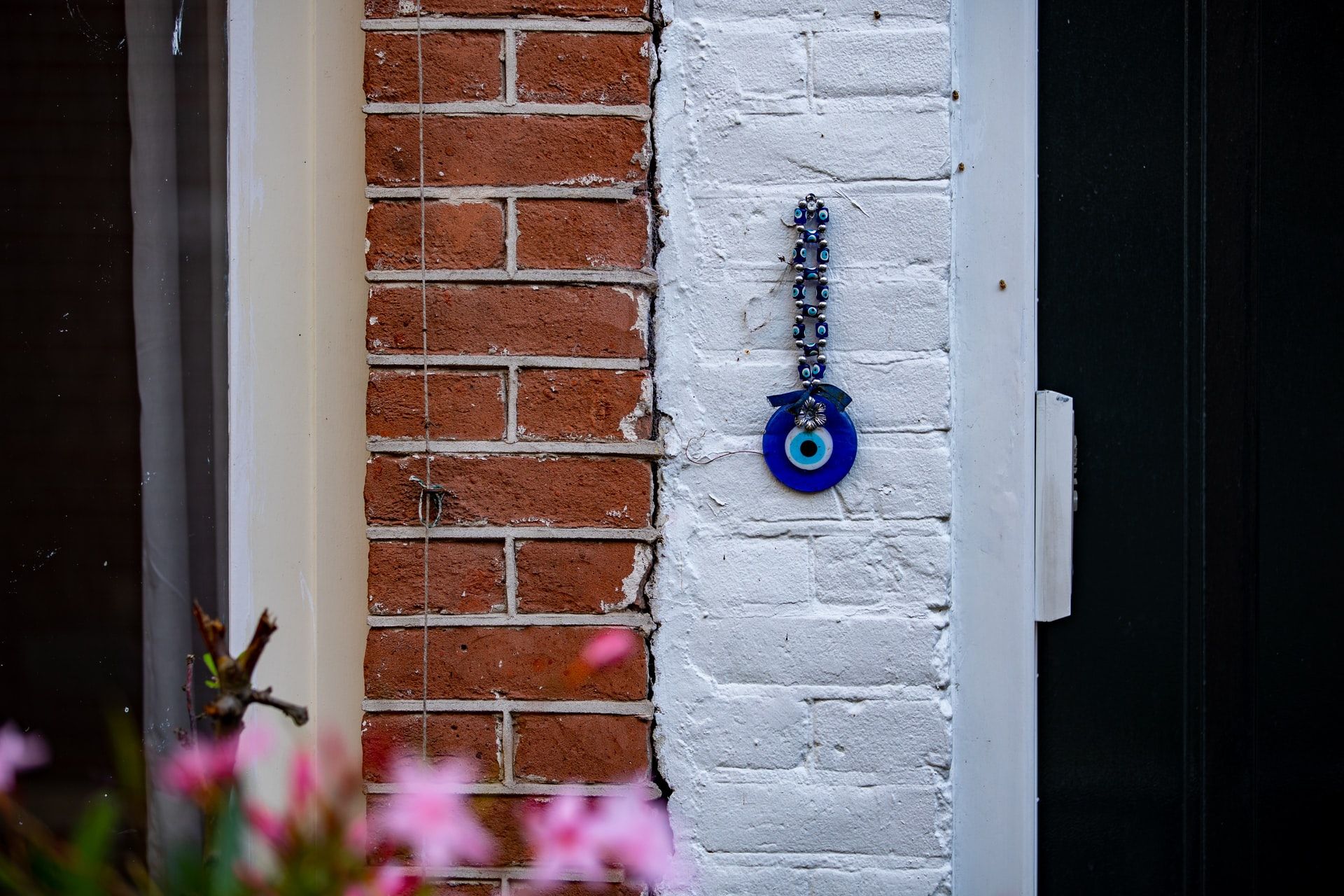
Locally known as the Nazar Boncuğu, old Turkish customs suggest that this amulet protects the bearer against harmful spirits. Dating back to 3,000 years ago, traces of this amulet have been found in most former Ottoman territories. The “Evil Eye” is the best-selling souvenir. The “Nazar boncuğu”, or “evil eye” is a stone made from molten glass, iron, and copper. A 3000-year-old tradition, it is worn to protect the wearer from evil forces. The belief is that the blue color of the stone has the power to protect the holder from negative energy.
20 Fascinating Facts About Turkey
15. Leonardo da Vinci was almost responsible for the Golden Horn Bridge

In 1473, the artist and inventor was asked to design a bridge over the Golden Horn, the waterway that divides Constantinople from the rest of modern-day Turkey. The assignment was a big one: to build a bridge wide enough for two-horse carriages to travel side by side, strong enough to bear the weight of a single horse and a boat, and long enough to connect the two sides of the Golden Horn without impeding shipping traffic.
But the bridge never materialized. Da Vinci never got the chance to build the bridge he envisioned. Construction of the Galata Bridge, which still stands today, was completed in 1494 by a man named Tullio de Sanlian. But the idea for the bridge came from Da Vinci, who dreamed of spanning the Golden Horn.
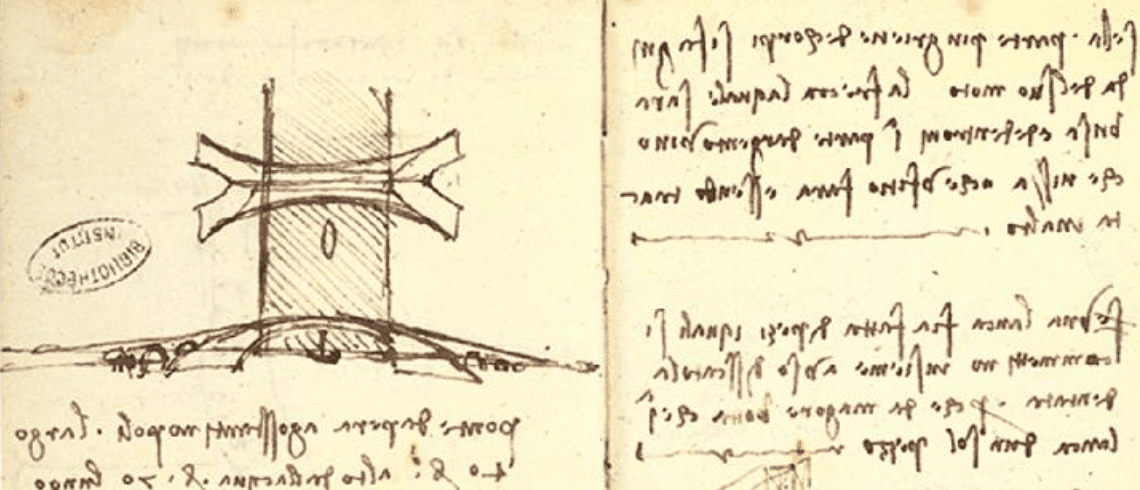
20 Fascinating Facts About Turkey
16. Turkey has more mosques than any other country

There are 82,693 mosques in Turkey. Turkey is home to some of the most beautiful mosques in the world, as about 99% of all Turks are Muslims. One of the most breathtaking mosques in Turkey is the Sultanahmet Mosque, popularly known as the ‘Blue Mosque’ in Istanbul.
17. Turkish people prefer tea over coffee
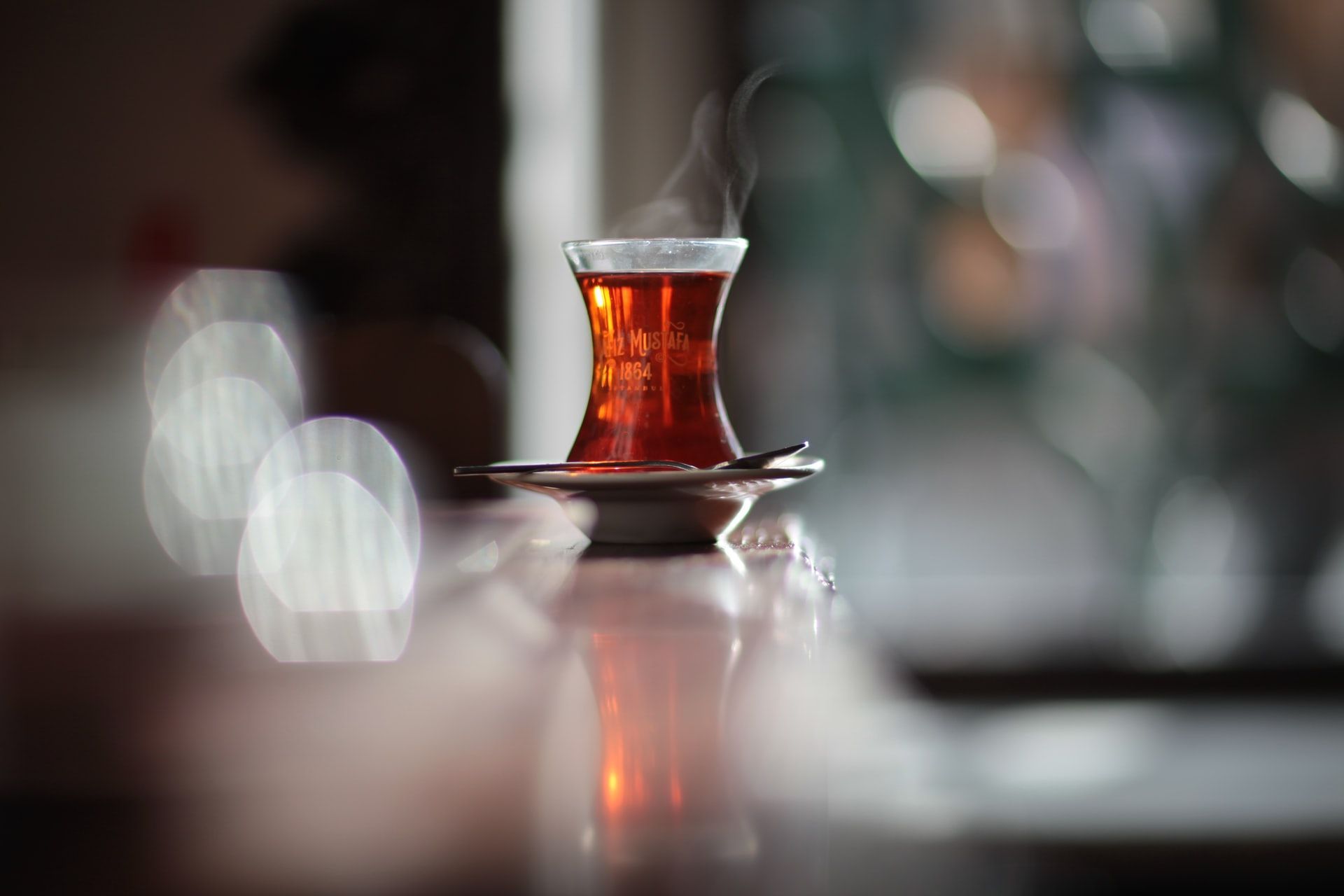
Although you may know Turkey for Turkish coffee, 96% of the population drinks at least one cup of tea per day. Turkey has, by far, the highest per-person consumption in the world. Each individual drinks 3.5 kilos of black tea on average annually. Turkish tea is robust, and they serve it in small tulip-shaped glasses. Make sure to try all our extraordinary tea flavors during your travels. Turkish tea is always offered in little tulip-shaped glasses. You have to hold them by the rim to save your fingertips from burning because it’s served boiling hot. These special slender waisted tea glasses whose curvy shape keeps the tea warm, also show the color of the tea.
18. Turkey introduced tulips to the world

If you ever traveled to Amsterdam, you might be aware of the tulip season in there and other parts of the Netherlands. But did you know that the first tulips were brought to The Netherlands from Turkey in the 16th century? Since then, and up to the present day, the tulip has been a popular theme in paintings, ceramics, festivals, traditional Dutch clogs, and the landscape across the nation. Tulips are native to Central Asia and they were in Turkish gardens long before reaching Central Europe. The government commemorates this fact by planting many bulbs in the city of Istanbul.
19. The Grand Bazaar has more than 3000 stores

The “Kapalı Çarşı” in Istanbul dates back to the 14th century and is now a labyrinth of 61 streets with around 3000 shops – definitely worth a visit. You can find anything from spices, local cheese, clothes, you name it. if you are coming to Istanbul visiting The grand bazaar is a must!
And as a bonus tip, that’s where you can bargain and enjoy cheaper prices 😉
20. Turkish people don’t wear Fez

It is something of an irony that the fez, a famous, round, and often a red piece of headwear, is among the favorite souvenirs of tourists visiting Turkey every year. These hats often appear on our TV sets in films or holiday commercials about the country. There is a funny irony in this association between the fez and Turkey as the wearing of these was once banned in 1925 by the country’s first President Mustafa Kemal Atatürk. This change was one of his many reforms aiming to establish Turkey as a modern, secular nation that was more aligned with Western ideals than Eastern ones.







I really enjoyed it,thank you so much for sharing these interesting things about Turkiye…
We are happy that you enjoyed!
Thanks for stopping by and writing this comment <3